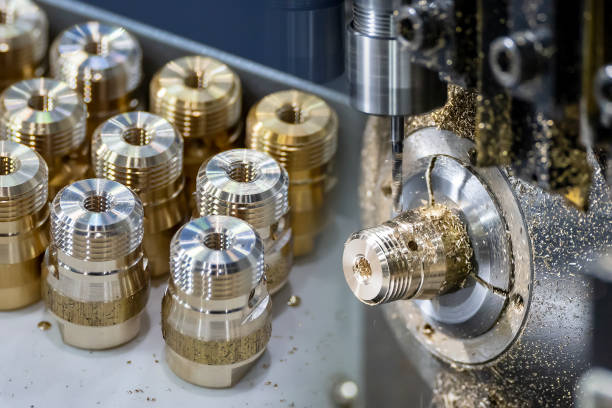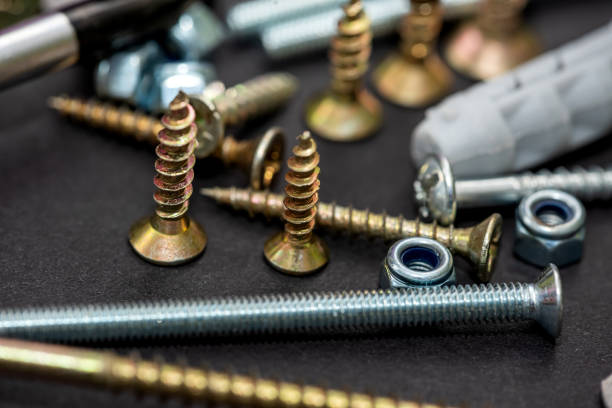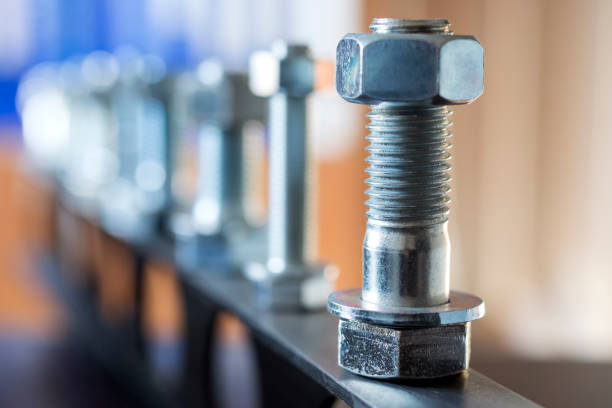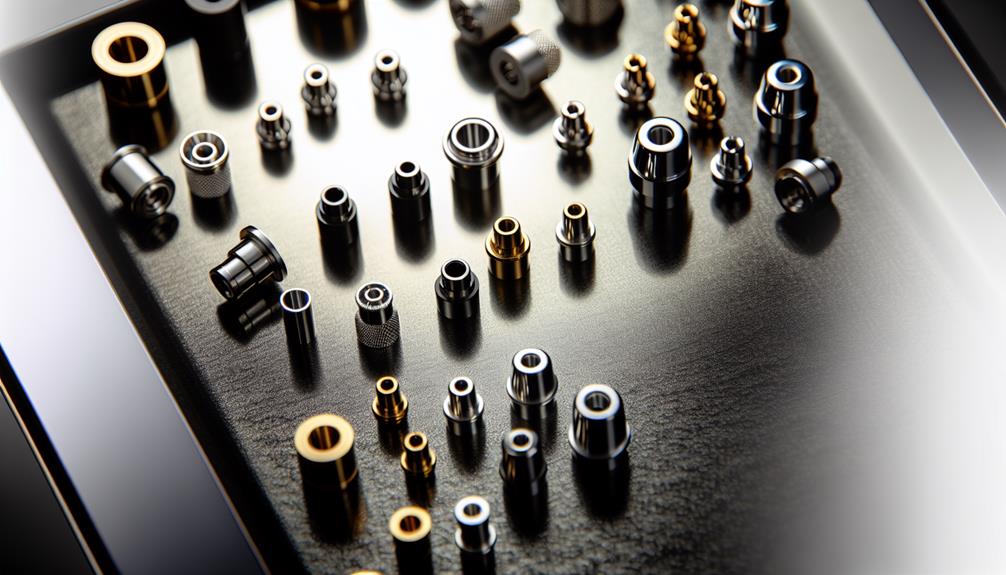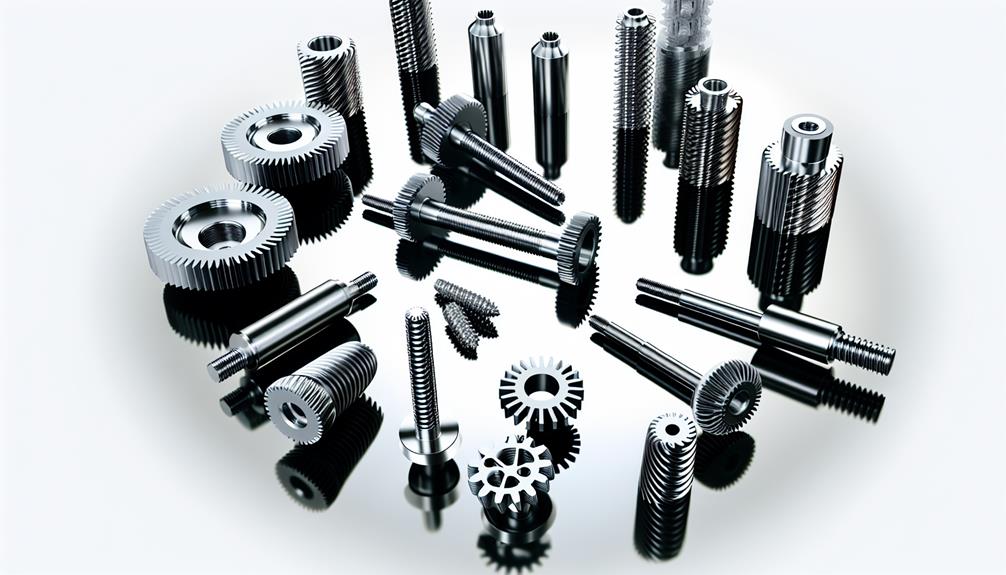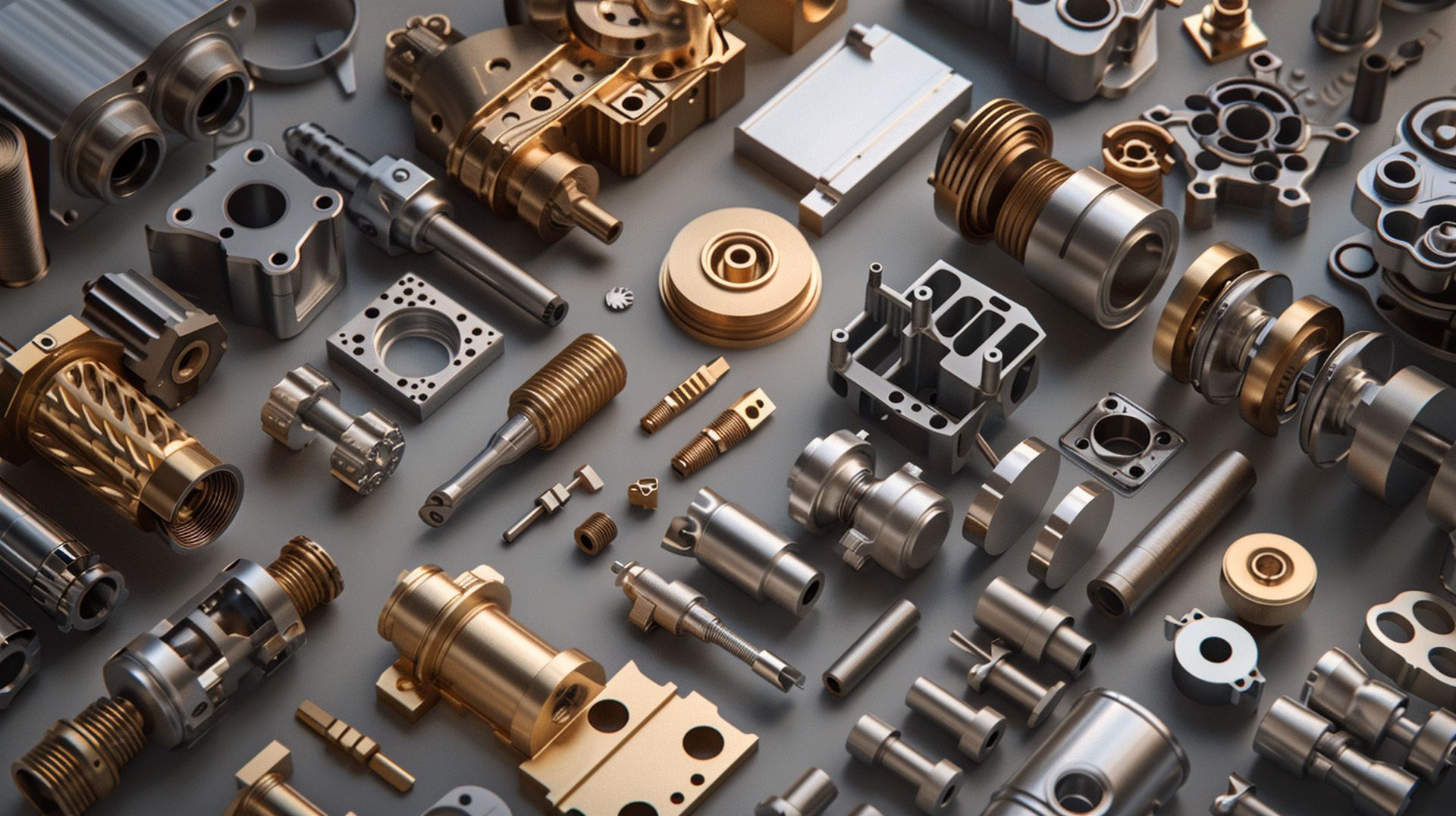How to Start a Fastener Business Successfully
Starting a fastener business successfully requires careful planning and strategic decision-making. This article aims to provide an objective and impersonal analysis of the key factors involved in launching and managing such a venture.
By examining the profitability of selling nuts and bolts, exploring the industries that heavily rely on fasteners, and delving into the intricacies of manufacturing screws and precision fasteners, this piece offers valuable insights for entrepreneurs looking to enter this industry.
Additionally, it highlights the importance of sourcing reliable suppliers as a crucial aspect of ensuring long-term success in the fastener business.
1.Starting a Fasteners Business
Starting a fasteners business requires careful planning, market analysis, and a comprehensive understanding of industry trends and customer demands. A thorough business plan is essential to outline the goals, strategies, and financial projections of the venture. Market analysis involves studying the target market, identifying potential customers, and evaluating competition. Understanding industry trends helps in identifying emerging opportunities and adapting to changing customer preferences.
To start a successful fasteners business, it is important to have knowledge about different types of fasteners such as nuts, bolts, screws, rivets, and anchors. This includes understanding their various sizes, materials (such as stainless steel or brass), strengths (grade classifications), and applications in different industries.
Moreover, building strong relationships with suppliers is crucial for ensuring a steady supply chain and competitive pricing. Establishing connections with manufacturers or distributors can provide access to high-quality products at reasonable prices.
In addition to these considerations for starting a fasteners business successfully, profitability can be achieved by specializing in selling nuts and bolts specifically. By focusing on this niche segment of the market instead of offering a wide range of fastener products, businesses can streamline their operations and develop expertise that allows them to cater effectively to customer demands for nuts and bolts.
With a solid foundation in place for starting a fasteners business successfully through careful planning and market analysis, it is important to evaluate the profitability of selling nuts and bolts within this industry context.
2.Profitability of Selling Nuts and Bolts
The profitability of selling nuts and bolts can be determined by analyzing market demand, competition, and pricing strategies. Understanding the market demand is crucial for any business to succeed. Nuts and bolts are essential components used in various industries such as construction, automotive, aerospace, and manufacturing. By examining the current market trends and demands within these industries, one can identify potential opportunities for selling nuts and bolts.
Analyzing competition is equally important in determining profitability. Identifying key competitors, their pricing strategies, product offerings, and distribution channels allows businesses to position themselves effectively within the market. Additionally, conducting a thorough analysis of competitor strengths and weaknesses enables businesses to develop unique selling propositions that differentiate them from others.
Pricing strategy plays a significant role in the profitability of selling nuts and bolts. Appropriate pricing ensures competitiveness while maintaining profit margins. Factors such as cost of production, overheads, industry standards, customer affordability, and perceived value should be considered when developing pricing strategies.
Understanding market demand dynamics along with effective competition analysis and strategic pricing will contribute to maximizing profitability in the nuts and bolts business.
Industries using fasteners heavily rely on reliable suppliers who can provide quality products at competitive prices. Therefore, it is essential to establish strong relationships with these industries to ensure sustained success in the fastener business.
3.Industries Using Fasteners
Industries relying heavily on fasteners require stable partnerships with reliable suppliers who can deliver high-quality products at competitive prices. Fasteners are essential components used in various industries, including automotive, construction, aerospace, and manufacturing.
In the automotive sector, fasteners are crucial for assembling vehicles and ensuring their safety and performance. Construction companies rely on fasteners to securely join structural components such as beams and panels. Fasteners play a vital role in aerospace manufacturing by holding aircraft parts together under extreme conditions. The manufacturing industry also extensively uses fasteners for machinery assembly and maintenance.
These industries demand fastener suppliers who can meet their specific requirements in terms of quality, durability, size, and material composition. Moreover, these partnerships need to be built on trust and reliability to ensure timely delivery of fasteners as any delays or substandard products could lead to production disruptions or compromised safety standards.
Understanding the diverse needs of these industries paves the way for launching a nuts and bolts manufacturing business. By identifying gaps in the market or areas where existing suppliers fall short, entrepreneurs can establish themselves as reliable providers of high-quality fasteners tailored to meet industry-specific demands.
4.Launching a Nuts and Bolts Manufacturing Business

Identifying gaps in the market and areas where existing suppliers fall short can enable entrepreneurs to establish themselves as reliable providers of high-quality fasteners tailored to meet industry-specific demands. One area that presents a promising opportunity for entrepreneurs is the manufacturing of nuts and bolts. Nuts and bolts are essential components used in various industries such as automotive, construction, aerospace, and machinery manufacturing. However, many fastener suppliers struggle to meet the specific requirements of these industries, leading to inefficiencies and delays in production processes.
To set up a fasteners manufacturing unit successfully, several factors need consideration. First, it is crucial to conduct thorough market research to identify target industries and their specific needs. Understanding the demand patterns and customer preferences will help in determining the types of fasteners required for production.
Second, acquiring suitable machinery and equipment capable of producing high-quality fasteners efficiently is necessary. Additionally, establishing relationships with reliable raw material suppliers is vital to ensure a consistent supply chain.
5.Setting Up a Fasteners Manufacturing Unit
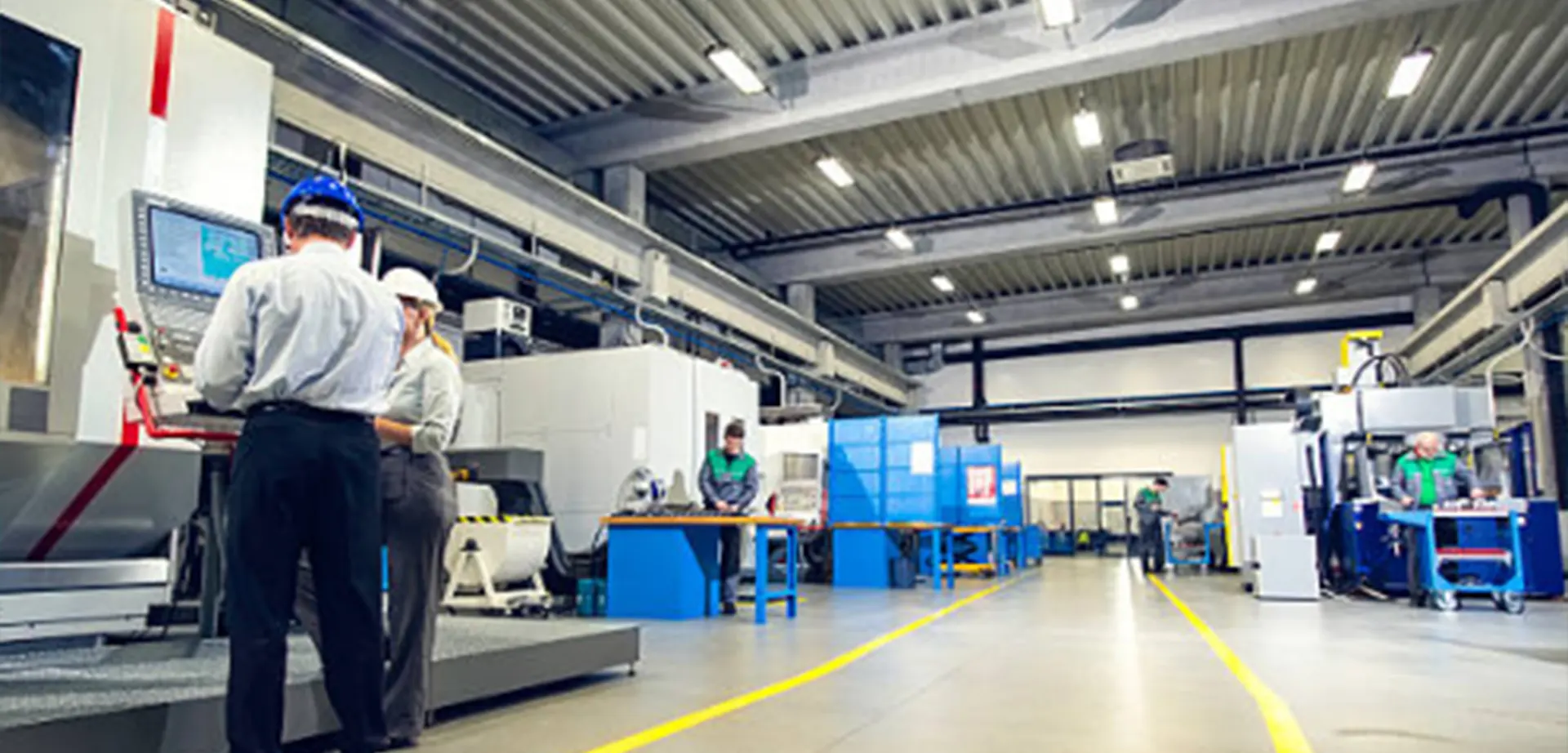
To establish a fasteners manufacturing unit, careful consideration of market research, suitable machinery and equipment, and reliable raw material suppliers is necessary. The following factors should be taken into account when setting up such a unit:
- Conducting Market Research: Before starting a fasteners manufacturing business, conducting thorough market research is crucial. This involves identifying the demand for various types of fasteners in the target market, understanding customer preferences, and analyzing competitors' products and pricing strategies.
- Acquiring Suitable Machinery and Equipment: Investing in high-quality machinery and equipment is essential for ensuring efficient production processes. This includes acquiring machines for cutting, shaping, threading, coating, and packaging fasteners. Additionally, considering automation options can help improve productivity and reduce labor costs.
- Establishing Reliable Raw Material Suppliers: To maintain consistent product quality, it is important to establish partnerships with reliable raw material suppliers who can provide high-grade materials such as steel or other alloys used for manufacturing fasteners.
- Implementing Quality Control Measures: Implementing stringent quality control measures throughout the production process is crucial to deliver reliable and durable fasteners to customers. This includes regular testing of raw materials, monitoring production parameters at each stage of manufacturing, and conducting final inspections before dispatching the finished products.
6.Exploring Precision Fasteners and Profitability
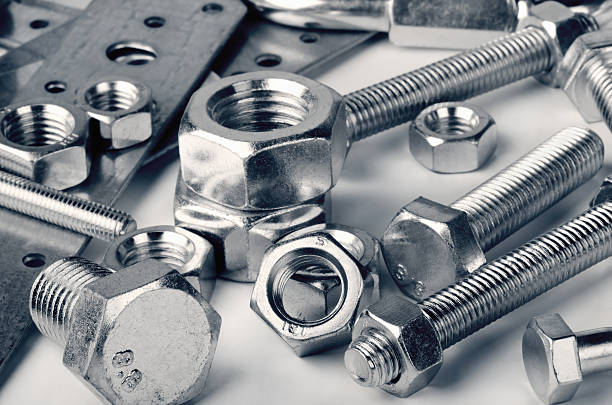
The profitability of precision fasteners can be explored by examining factors such as market demand, production efficiency, and cost management.
Market demand plays a crucial role in determining the profitability of precision fasteners. The demand for these specialized fasteners is directly influenced by industries such as automotive, aerospace, construction, and electronics. Understanding the specific requirements of these industries and staying up-to-date with technological advancements can help manufacturers target the right market segments and maximize their profits.
Production efficiency is another key factor that impacts the profitability of precision fasteners. Efficient manufacturing processes ensure timely delivery of high-quality products while minimizing resource wastage. Implementing lean manufacturing principles, investing in advanced machinery and automation technologies, and optimizing supply chain management are some strategies that can enhance production efficiency.
Cost management is essential for maximizing profitability in the precision fastener industry. Manufacturers need to carefully analyze their costs, including raw materials procurement, labor expenses, overheads, and transportation costs. Negotiating favorable contracts with suppliers, streamlining internal operations to reduce waste and improve productivity, implementing cost-saving measures like energy-efficient practices are all important steps in effective cost management.
Exploring screws and fasteners manufacturing in detail provides a deeper understanding of the intricacies involved in producing these essential components.
7.Screws and Fasteners Manufacturing in Detail
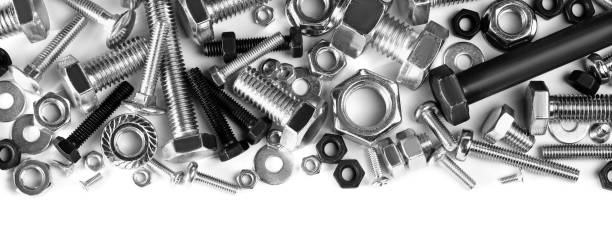
Screws and fasteners manufacturing involves a complex process that encompasses various stages. To ensure the production of high-quality screws and fasteners, manufacturers must carefully follow each step in the manufacturing process.
- Material selection: The choice of materials is crucial as it directly impacts the durability and performance of the screws and fasteners. Manufacturers consider factors such as strength, corrosion resistance, and cost when selecting materials.
- Design engineering: This stage involves designing the shape and dimensions of the screws and fasteners to meet specific requirements. Manufacturers utilize computer-aided design (CAD) software to create precise designs.
- Machining: Once the design is finalized, machines are used to cut or mold raw materials into the desired shape. This process requires precision to ensure accurate dimensions and smooth surfaces.
- Finishing: Screws and fasteners undergo various finishing processes such as heat treatment or coating to enhance their mechanical properties or protect against corrosion.
By meticulously following these steps in screws and fasteners manufacturing, manufacturers can produce reliable products that meet industry standards.
Sourcing reliable fastener suppliers is a critical aspect for businesses looking to establish themselves successfully in this field without compromising on quality or efficiency.
8.Sourcing Reliable Fastener Suppliers

Sourcing reliable suppliers of screws and fasteners is a crucial aspect in the manufacturing industry, as it ensures the procurement of high-quality materials for production. When considering potential suppliers, several factors need to be taken into account to guarantee a successful partnership.
Firstly, it is important to assess the supplier's reputation and track record. This can be done by conducting thorough research on their background, including their experience in the industry and any previous collaborations with reputable companies.
Additionally, evaluating the supplier's manufacturing capabilities and quality control processes is essential. This involves examining their production facilities, equipment, and adherence to industry standards such as ISO certifications.
Furthermore, assessing the supplier's financial stability is crucial to ensure that they have the resources necessary to meet your company's demands consistently.
Lastly, communication and responsiveness are key factors in selecting a reliable supplier. A prompt response time indicates a commitment to customer service and can help address any potential issues or concerns efficiently.
Overall, sourcing reliable suppliers requires careful evaluation of factors such as reputation, manufacturing capabilities, financial stability, and communication skills in order to secure high-quality materials for production purposes.
In conclusion, starting a fastener business can be a profitable venture due to the high demand for nuts, bolts, screws, and other fasteners in various industries. Setting up a manufacturing unit allows for greater control over production and quality. Precision fasteners offer higher profitability due to their specialized nature.
At Mikehardware, we will give you the best fastener quality and service, we will be your best cooperation supplier!
It is crucial to source reliable suppliers to ensure consistent product availability. One interesting statistic is that the global market for industrial fasteners is projected to reach $104 billion by 2027, highlighting the significant growth potential in this industry.

